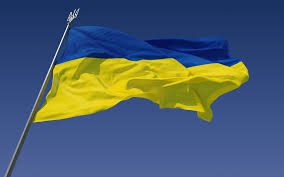
The macroeconomic aid of EUR 1.2 billion the European Commission has decided to propose to Ukraine will be disbursed at two installments, Ukraine’s envoy to the EU Mykola Tochytsky told Interfax-Ukraine in Brussels on Wednesday.
The first EUR 600 million will be allocated unconditionally, immediately after adoption by the European Parliament and the Council of the EU, and the other EUR 600 million will be extended under some specific conditions, which the EU and Kyiv will begin negotiating in the near future, Tochytsky said in commenting on the European Commission’s decision to distribute EUR 1.2 billion in emergency macro-financial assistance to Ukraine to limit the economic fallout of the coronavirus pandemic.
“The first tranche of EUR 600 million will be provided unconditionally and the second upon Ukraine’s compliance with criteria to be agreed upon with Kyiv within the next few months,” he said.
Asked what these criteria could be, Tochytsky pointed out that no specific talks on the matter have been started so far, but, judging by the criteria set for other similar agreements concluded earlier between Kyiv and Brussels, these could be some measures related to public finance administration, anti-corruption efforts, taxation, labor and social protection, business climate, customs, and so on.
“Apart from the EU, there is no other association of countries that could provide a similar amount of assistance not only to its members but also to other partners. We are grateful to our European partners for their extremely timely and significant support for our economy, business and population,” he said.
In procedural terms, the provision of this EUR 1.2 billion emergency macro-financial assistance by the European Commission is “only the beginning,” as it has yet to be adopted by the European Parliament and the Council of the EU, Tochytsky said. “Simultaneously, negotiations will proceed on signing a relevant memorandum between Ukraine and the EU, which will be subject to ratification by the Ukrainian Verkhovna Rada after its signature. In other words, this is a lengthy process,” he said.
The European Union provides macro-financial assistance only to its partners that successfully cooperate with the International Monetary Fund (IMF), Tochytsky said. “This is a general condition. Therefore, the disbursement of the last, the fourth, tranche of the fourth macro-financial assistance program, which was endorsed back in September 2018, as well as the second tranche of the present emergency macro-financial assistance, depends on the passage by the parliament of the so-called banking bill in an edition agreed upon with the IMF,” he said.
Considering this, the Ukrainian diplomat said he expected that the fourth installment of EUR 500 million will be disbursed in the first half and the EUR 600 million of the emergency assistance in the second half of the year.
Apart from this, the EU decided on April 8 to offer Ukraine an aid package in the amount of EUR 190 million, Tochytsky said. “These resources, in particular, will be allotted for helping the people living in the areas that suffered from Russian aggression in the eastern part of the country. This includes EUR 30 million as so-called technical assistance for the Ukrainian healthcare system, which implies not only the procurement of the necessary equipment and supplies but also for upgrading [the medical personnel’s] qualification and facilitating the Health Ministry’s legislative work,” he said.
Another EUR 45 million is to be spent on a program of support for small and medium-sized businesses and the already existing programs, and some part of this sum will also be offered as easy loans, including those denominated in hryvnias, Tochytsky said.
This assistance also includes EUR 10 million for a state administration support program, and some funds will also be provided to non-governmental organizations, he said.
As another example of EU’s financial assistance to Ukraine, Tochytsky mentioned the allocation of EUR 13 million of humanitarian aid disbursed on April 16. “This tranche will be spent not only on fighting coronavirus but also on other needs, such as, for example, water supply restoration,” he said.